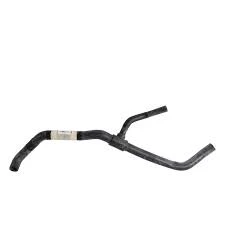heater gas hose
ພ.ຈ. . 13, 2024 11:10 Back to list
heater gas hose
Understanding Heater Gas Hoses Importance, Types, and Maintenance
In the world of home heating and gas appliances, safety and efficiency are paramount. One critical component that often goes overlooked is the heater gas hose. Whether used in residential heating systems, outdoor heating appliances, or even specific industrial applications, understanding the function, types, and maintenance of these hoses can help ensure safe operation and longevity of your heating equipment.
What is a Heater Gas Hose?
A heater gas hose is a flexible tube designed to transport gas from a gas supply line to a heating appliance. These hoses are typically made from durable materials that can withstand high pressure and resist degradation from various environmental factors, including UV radiation, moisture, and temperature fluctuations. Heater gas hoses play a crucial role in delivering fuel efficiently while maintaining safe operation, ensuring that appliances function as intended.
Types of Heater Gas Hoses
There are several types of heater gas hoses, each suited for specific applications and environments
1. Rubber Hoses Traditional rubber hoses are common in many heating systems. They are relatively inexpensive and flexible but can degrade over time due to exposure to sunlight and chemicals.
2. Polyethylene Hoses These are lightweight and resistant to various chemicals, making them suitable for outdoor applications. Polyethylene hoses are less prone to kinking, which can affect gas flow.
3. Stainless Steel Braided Hoses Often used in high-pressure applications, stainless steel braided hoses provide excellent durability and resistance to wear and tear. They are ideal for settings where hoses may be subject to physical damage or high temperatures.
4. PVC Hoses Polyvinyl Chloride (PVC) hoses are another option, often used for lower pressure applications. While they are cost-effective, they may not be as durable as other options and are typically not recommended for high-temperature environments.
5. Corrugated Hoses These flexible hoses have a wavy design that allows for greater expansion and contraction, making them suitable for applications where movement is expected. They are often used in areas requiring flexibility, such as in between gas appliances and fixed gas lines.
heater gas hose

Importance of Quality Hoses
Using high-quality heater gas hoses is essential for ensuring safe operation. Poor-quality hoses can crack, leak, and cause dangerous gas escapes that may lead to fire hazards or health risks due to inhalation of harmful substances. It is critical to choose hoses that meet applicable safety standards and regulations to guarantee reliability and peace of mind.
Maintenance and Inspection
Regular maintenance and inspection of heater gas hoses are vital steps in promoting safety. Homeowners and maintenance personnel should perform routine checks for any signs of wear and tear, such as cracks, bulges, or leaks. Here are some tips for maintaining heater gas hoses
1. Visual Inspections Frequently inspect the hoses for any visible damage. Look for signs of wear, such as fraying, discoloration, or kinks that could obstruct gas flow.
2. Check Connections Ensure that all connections between the gas supply and heating appliance are secured and tight. Loose connections can lead to leaks.
3. Avoiding Overexposure Protect hoses from environmental hazards. If applicable, avoid letting them come in contact with sharp edges or extreme temperatures.
4. Replace Worn Hoses If any hose shows significant signs of wear or damage, replace it immediately rather than risking a failure.
5. Consult Professionals When in doubt, consult a professional for a thorough inspection and maintenance. They can conduct pressure tests and ensure everything is functioning properly.
In conclusion, heater gas hoses are a crucial component of any gas heating system. Understanding their types, importance, and maintenance can help ensure that your heating appliances operate safely and efficiently. By prioritizing quality and conducting regular inspections, you can protect your home, your health, and your investment in heating technology.
